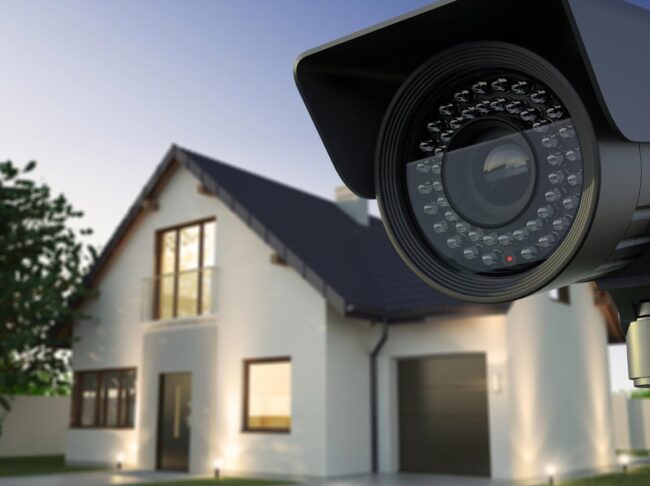To say that the home security industry has exploded in recent years is to state the obvious. A decade ago, there were only a small number of companies offering professionally installed security systems with around-the-clock monitoring. Today they are vying with a growing number of competing providers and a very robust DIY market. And where competition is robust, cost becomes a major influence in purchase decisions.
We tend to hold to that old adage that says you get what you pay for. Our general rule is that cheaper products do not work as well, do not last as long, and are of overall lower quality. But is that true in the security arena? Unfortunately, we cannot say with any certainty.
Reviews Only Goes So Far

Imagine a consumer searching for a new home security system. He can read tons of consumer reviews online. He can read an in-depth, professional review of a particular manufacturer’s equipment. The trouble is that most of the information readily available to consumers is based on opinion – whether educated or not.
There are no hard and fast scientific tests that prove the relationship between cost and effectiveness one way or the other. If there were, purchase decisions would be easy. Yet the absence of scientific data forces us to rely on what other people say. This leaves the door wide open to the possibility that DIY systems are just as good as their professionally installed counterparts.
Check the Brand Names
Every home security system is only as good as its individual components. The quality of each component is the basis on which to offer any analysis of cost and effectiveness. To that end, taking a hard look at brand names goes a long way. Take the Ring brand, for example.
Ring is the company that pioneered the video doorbell. It proved so successful as a startup that Amazon acquired it for $1 billion back in 2018. The Ring brand is synonymous with home security as a result.
Imagine you were negotiating with a top-tier security company to have a wireless system professionally installed. That company supplies Ring-branded components. A friend tells you that you can buy the same Ring components from Vivint Smart Home. However, there is one catch: the Vivint system isn’t a DIY product.
The Ring video doorbell is what it is regardless of the retailer who sells it. You will pay less by going DIY yet without sacrificing quality. Of course, that assumes you trust the Ring brand. The point is that cost variations between systems do not always have to do with component brand or quality.
Installation the Biggest Difference

Start looking at manufacturer names and you will quickly discover that the biggest difference in determining home security system price is installation. A professionally installed system tends to cost more because you are paying for both equipment and labor. And let’s face it, paying installers can be rather expensive.
DIY systems cost less because you handle the installation yourself. Now, this may or may not be an issue for you. It really just depends on how comfortable you are with wireless technology and consumer electronics.
There are people who still have trouble programming a thermostat or setting up a DVR. They don’t know enough about their home wi-fi networks to change their router usernames and passwords. These types of consumers might be better off paying extra for a professionally installed system. It is far better that their system works as intended.
On the other hand, most of us are fairly technologically savvy – at least in terms of using wireless devices. We have had enough experience with our laptop computers and smartphones to figure things out. Paying extra for professional installation doesn’t seem to make much sense.
This brings us back to the question of cost and effectiveness. Yes, you can save quite a bit of money by going the DIY route. But your technology skills may impact the effectiveness of your system. Simply put, your system might not work as intended if you do not set it up correctly.
System Design and Effectiveness
Professional installation brings something else to the table as well: more effective design. In other words, professional installers know how to make systems as effective as possible. They know the best places to locate video cameras. They know the best position for a video doorbell. They are familiar with the best places to install window and door sensors.
Those of us who don’t do home security professionally are left to guess. On the other hand, there is plenty of free information online. All it takes is a few hours of in-depth research to figure out an effective home security design that fits the needs of the owner’s home.
A person not comfortable designing his/her own system might be better off paying for professional installation. Another person fully confident of his or her own abilities might be just fine with a DIY design. Again, there is no black or white answer.
Do Your Research

If you began reading this article hoping to get a definitive answer on home security cost versus effectiveness, you are not going to get what you’re looking for. Home security is one area in which it is hard to make black-and-white statements. There are just too many variables to consider.
It really comes down to doing your research. At the top of the list is figuring out exactly what you want from a home security system. It could be that you want something so elaborate and complex that going DIY is just not possible. On the other hand, you might only be looking at installing a few cameras along with an electronic door lock.
Just understand that the old rule of getting what you pay for doesn’t necessarily apply here. When hardware components are equal, as they often are, the price difference between competing systems generally ends up being the difference between professional and DIY installation. It really is just that simple.
